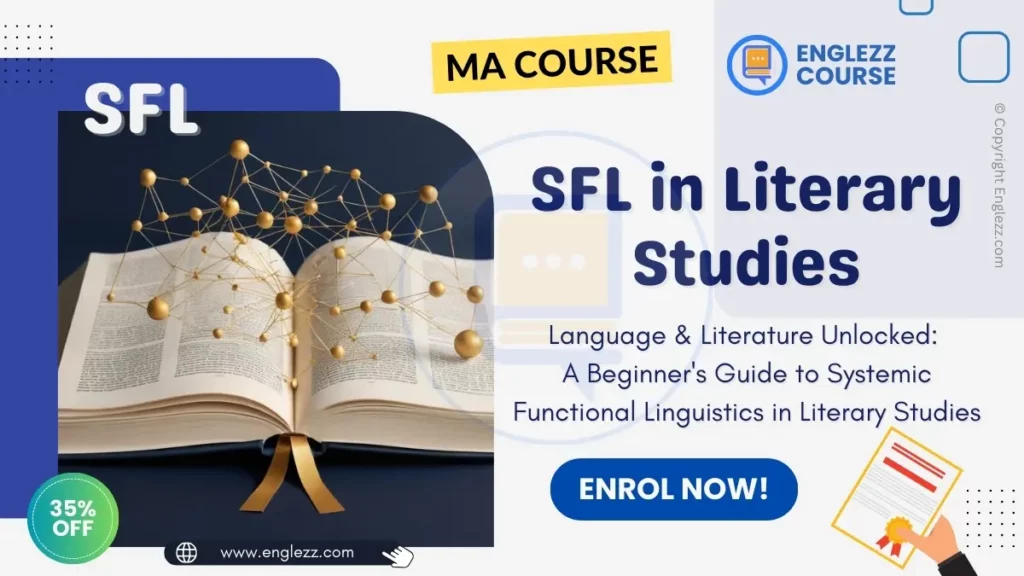Introduction to Systemic Functional Linguistics in Literary Studies Course: Language & Literature Unlocked
About Course
This course introduces students to the application of Systemic Functional Linguistics (SFL) in literary studies. It explores how language functions in literary discourse, emphasizing Hallidayan linguistics, metafunctions, appraisal theory, and discourse analysis.
The course also integrates an intersectional perspective, examining how social factors (gender, race, class) influence meaning-making in literary texts.
Master the Art of Linguistic Analysis to Uncover Hidden Meanings in Literary Texts
Discover how language shapes meaning in literature through the powerful lens of Systemic Functional Linguistics (SFL). This comprehensive, beginner-friendly course is designed specifically for MA students and enthusiasts of literary studies who wish to explore the intricate relationship between language, literature, and social context.

In “Introduction to Systemic Functional Linguistics in Literary Studies,” you will learn:
- The fundamental concepts of SFL, including its three metafunctions—ideational, interpersonal, and textual.
- How to analyze literary texts using transitivity, appraisal, thematic organization, and other SFL tools.
- Techniques to integrate intersectional perspectives, critical theory, and corpus-based approaches into your analysis.
- Practical strategies for conducting original research projects and crafting high-quality academic essays.
Whether you’re aiming to deepen your literary analysis skills or seeking a new methodology for your research, this course offers you a step-by-step guide to unraveling the layers of meaning within literary texts.
Additional Information:
- Language: English
- Course Duration: Approximately 10 hours of on-demand video content, plus quizzes and assignments.
- Certification: Receive an EnglEzz certificate upon successful completion of the course (minimum 80% on assessments).
Enroll today in “Introduction to Systemic Functional Linguistics in Literary Studies” to transform your understanding of literary texts and empower your academic research with the advanced tools of Systemic Functional Linguistics!
Course Content
Unit 1: Introduction to Systemic Functional Linguistics (SFL)
-
What is Systemic Functional Linguistics (SFL)?
00:00 -
Structuralist vs. Functionalist Approaches to Language
00:00 -
Context of Situation and Context of Culture
00:00 -
How SFL is Used in Literary Studies
00:00 -
Conclusion & Key Takeaways
00:00 -
Recommended Readings
Unit 2: The Three Metafunctions of Language in Literary Texts
Unit 3: The Ideational Metafunction – Representing Experience
Unit 4: The Interpersonal Metafunction – Power and Subjectivity
Unit 5: The Textual Metafunction – Cohesion and Coherence
Unit 6: Appraisal Theory and Literary Evaluation
Unit 7: SFL and Literary Genre Analysis
Unit 8: Discourse and Ideology in Literary Texts
Unit 9: Multimodal SFL Analysis in Literary Studies
Unit 10: Intersectionality and SFL in Literary Analysis
Unit 11: Corpus-Based SFL Approaches in Literary Studies
Unit 12: Practical Applications and Final Project
Final Assessment Quiz
Earn a certificate
Add this certificate to your resume to demonstrate your skills & increase your chances of getting noticed.

Student Ratings & Reviews

